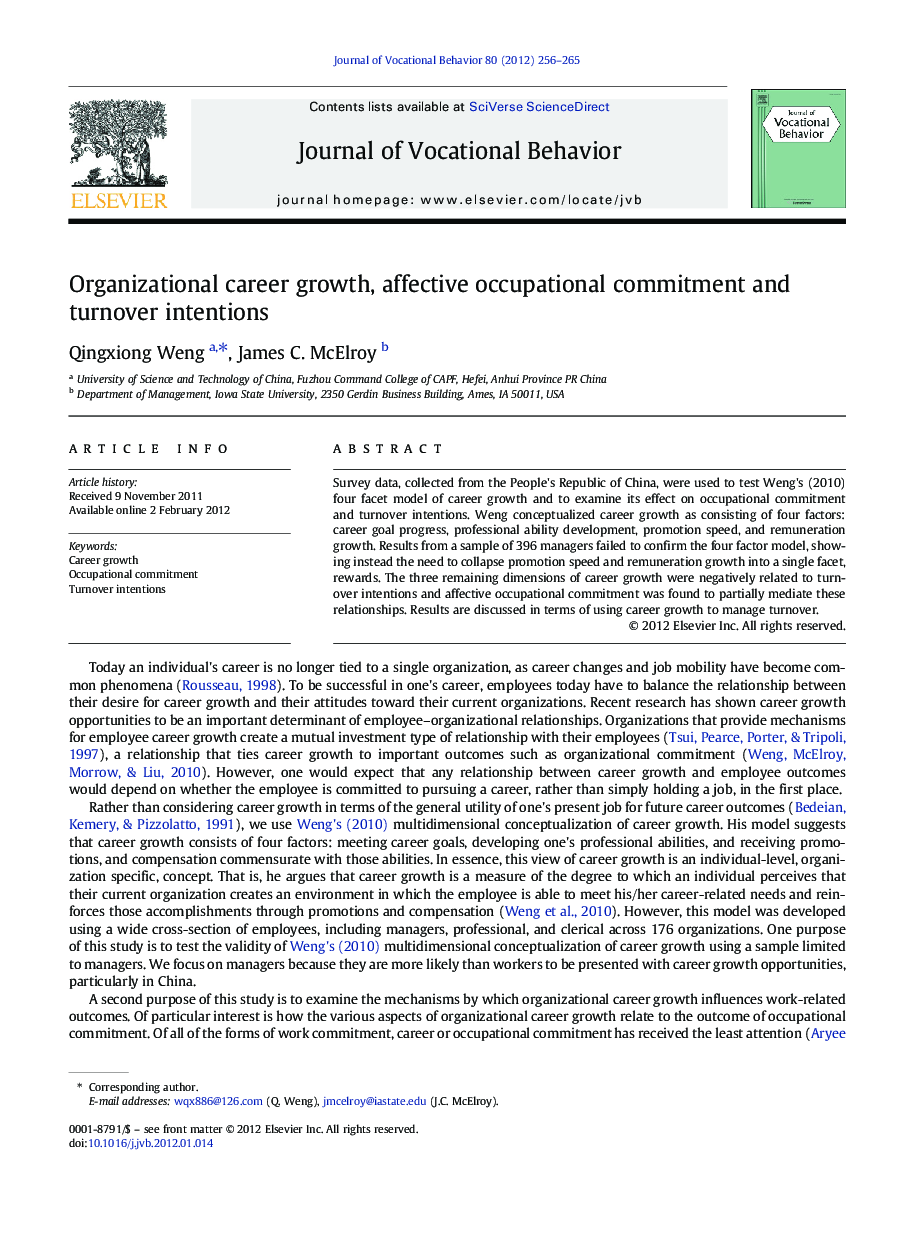| Article ID | Journal | Published Year | Pages | File Type |
|---|---|---|---|---|
| 887069 | Journal of Vocational Behavior | 2012 | 10 Pages |
Survey data, collected from the People's Republic of China, were used to test Weng's (2010) four facet model of career growth and to examine its effect on occupational commitment and turnover intentions. Weng conceptualized career growth as consisting of four factors: career goal progress, professional ability development, promotion speed, and remuneration growth. Results from a sample of 396 managers failed to confirm the four factor model, showing instead the need to collapse promotion speed and remuneration growth into a single facet, rewards. The three remaining dimensions of career growth were negatively related to turnover intentions and affective occupational commitment was found to partially mediate these relationships. Results are discussed in terms of using career growth to manage turnover.
► Survey data from China were used to test the effect of career growth on turnover. ► Career growth consists of career goal progress, professional development and rewards. ► All three facets of career growth were negatively related to turnover intentions. ► Affective occupational commitment partially mediated this relationship.
